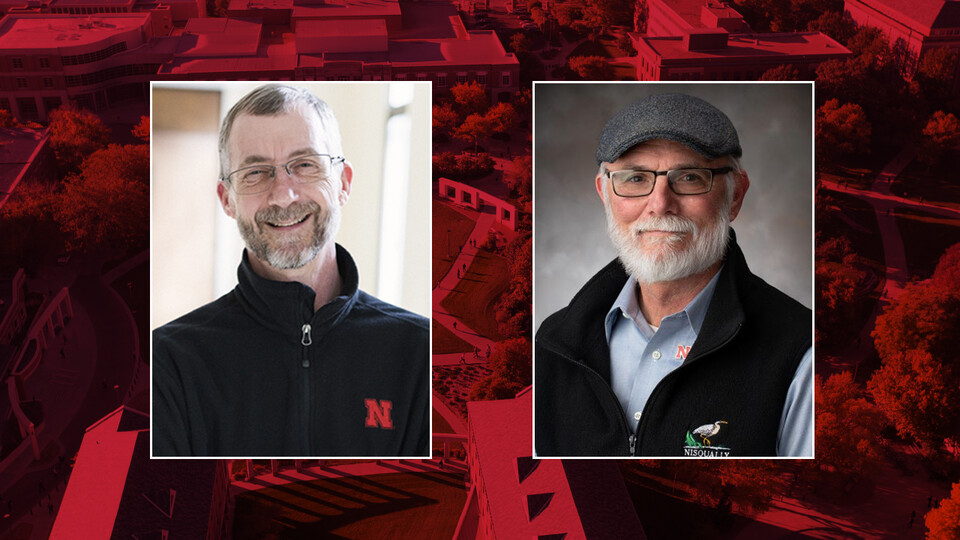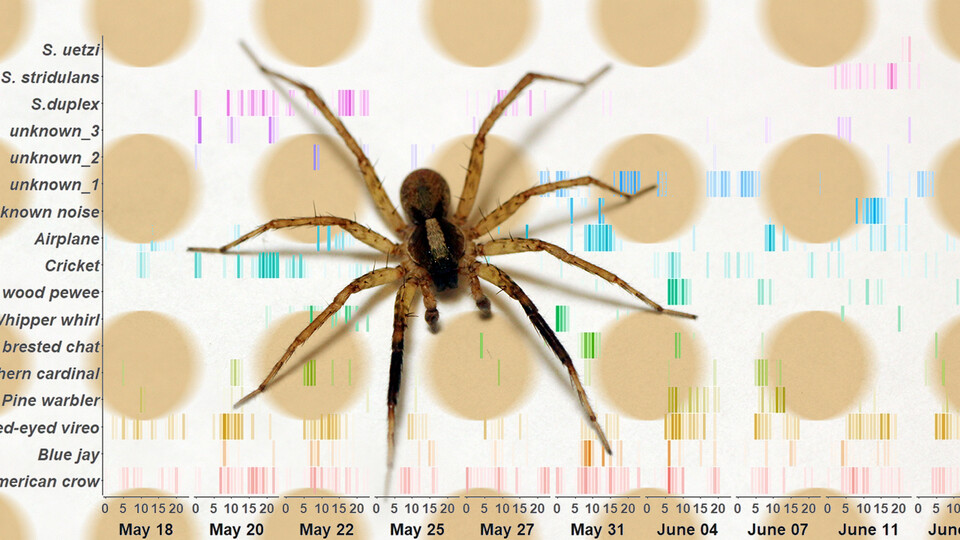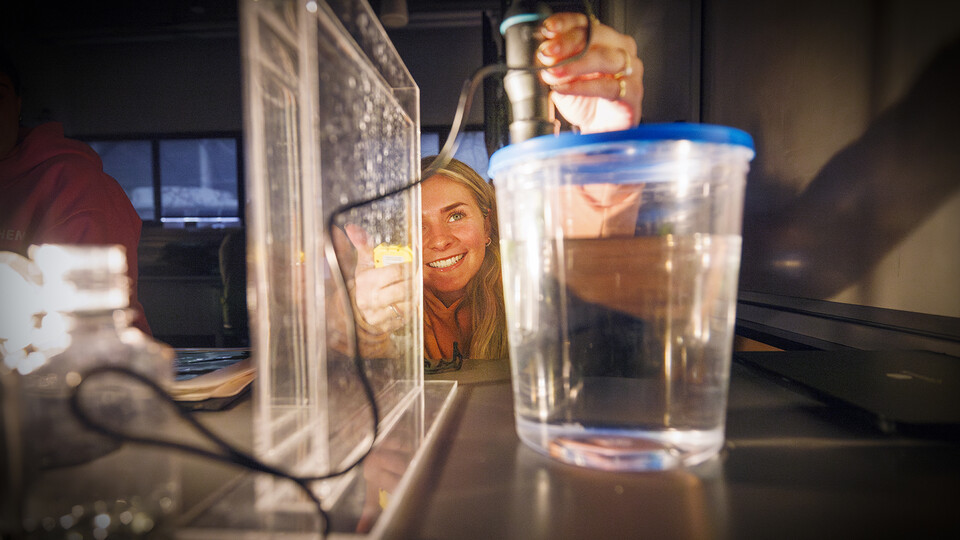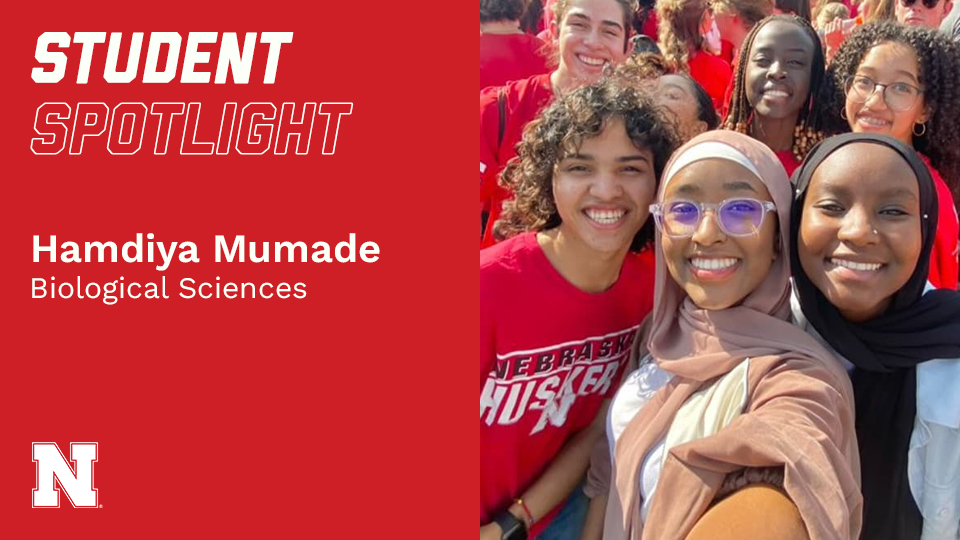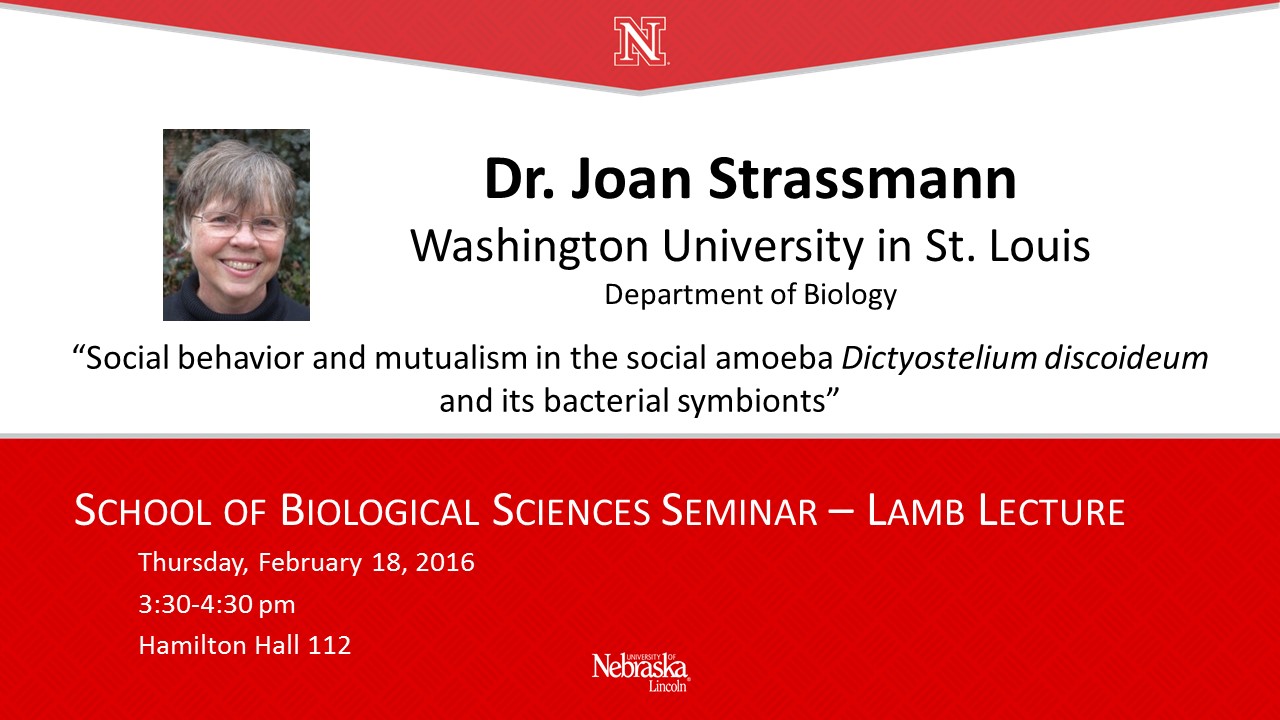
The Lamb Lecture will be Thursday, February 18, 2016 at 3:30 pm in Hamilton Hall 112.
This year's Lamb Lecturer is Dr. Joan Strassmann. Dr. Strassmann is Charles Rebstock Professor of Biology at Washington University in St. Louis where she has been since 2011. She was previously on the faculty at Rice University for 30 years. She received her Ph.D. at the University of Texas at Austin and her B. S. from the University of Michigan. In 2013 she was elected to the National Academy of Sciences. She is interested in the evolution of cooperation and the control of conflict in social and mutualistic systems, from social wasps and bees to microbes including Dictyostelium and bacteria.
Dr. Strassmann will be presenting "Social Behavior and Mutualism in the Social Amoeba Dictyostelium Discoideum and its Bacterial Symbionts." With microbial studies we can see how well theories of social behavior derived from organisms with brains apply to organisms where cell adhesion, receptors, and secretions prevail. Furthermore, we can test specific predictions of kin selection and mutualism using experiments, experimental evolution, and genomics. Here I explore the behavioral ecology of social amoebae, introduce some of the genes behind these interactions, and delve into some of the complex interactions between amoebae and bacteria. Are the bacteria a disease, a crop, or a weapon?
Dr. Strassmann was chosen by the Ecology, Evolution and Behavior (EEB) graduate students in the School of Biological Sciences.
George N. Lamb Lectureship
The George N. Lamb Lectureship is made possible through a bequest to the Department of Botany (now part of the School of Biological Sciences) from the estate of the late George N. Lamb. Mr. Lamb was a student at UNL where he received his B.S. and M.S. degrees under the guidance of Dr. Charles Bessey. He was an authority on the woods of the world and had great influence nationally on the husbandry and use of woods, principally walnut and mahogany. Through this bequest, graduate students are able to meet and interact with an outstanding scientist.
